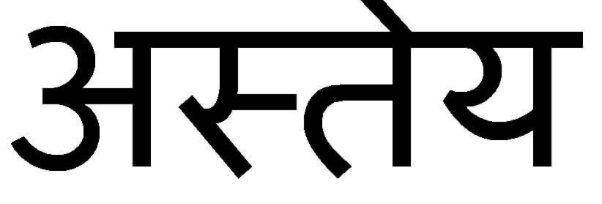1.- How you should start in the Yama Asteya
1.1.- Do not take what is not yours
Asteya means not take something that is not yours, avoid taking advantage of others and keep things or merits that we have not achieved for ourselves. Being honest includes respecting others, their merits and achievements, and also the ideas that belong to you. Having confidence in oneself avoids having to envy or need what others have.

1.2.- How to act in consequence
Therefore, Asteya, demands the lack of greed. Wishing the things of others, even if they are necessary to us, leads us to lack of balance and/or unhappiness.
The sage Vyasa said: “ASTEYA is realized when the yogi, free from any desire, refuses to take possession of things that belong to others.”
By practicing Asteya, we focus on those things we can contribute, avoiding greed and envy, learning about our abilities to evolve, and I feel how this practice transforms us day by day.
In our online incense store we have a way to prevent greed and envy in a subtle way, using an Ayurvedic method with Shatavari Incense.

2.- The precepts to follow in the Yama Asteya
Asteya reveals to us that we do not need to steal, since in reality you do not lack anything; she invites us to radically change our way of thinking, to understand that in this world we have everything we need.
If we live in fear and hoard without sharing, we lose balance. Asteya means living in the purest generosity.
We have to stand on the other side of fear so that from this place, we can trust that we have all the necessary tools to face any situation.

When you don’t take or want something unnecessary, when you refrain from being unfair, when you keep in mind the feelings of others, you will experience the world as part of the diversity of a rich and plural society.
“Asteya means living in the purest generosity”
Yama Asteya
2.1.- The enclosed principles
The Asteya principle has been widely discussed in many historical documents covering philosophy, Hinduism, and yoga.
In more recent times, Mahatma Gandhi defined Asteya as the basic human right to own property without fear. He also referred to Asteya being an extension of ahimsa (non-violence). If we remember correctly, Satya, the second Yama, encouraged us to be authentic. Asteya gives us the strength and confidence to achieve it.

3.- Incorporate the Yama Asteya in your daily life
The yogi who seeks self-realization follows the ethical principles of the yamas. Asteya inspires us to develop respect, gratitude and honesty, in short, justice for oneself and for everyone. Our actions and decisions have a collateral effect, that by being aware we can choose the result.

When you incorporate Asteya into your daily life, you live a deeply enriching experience.
